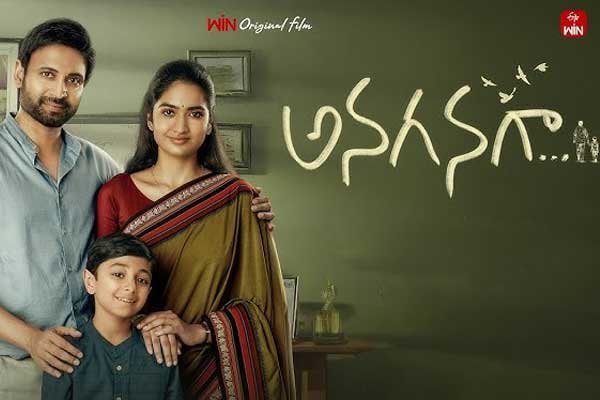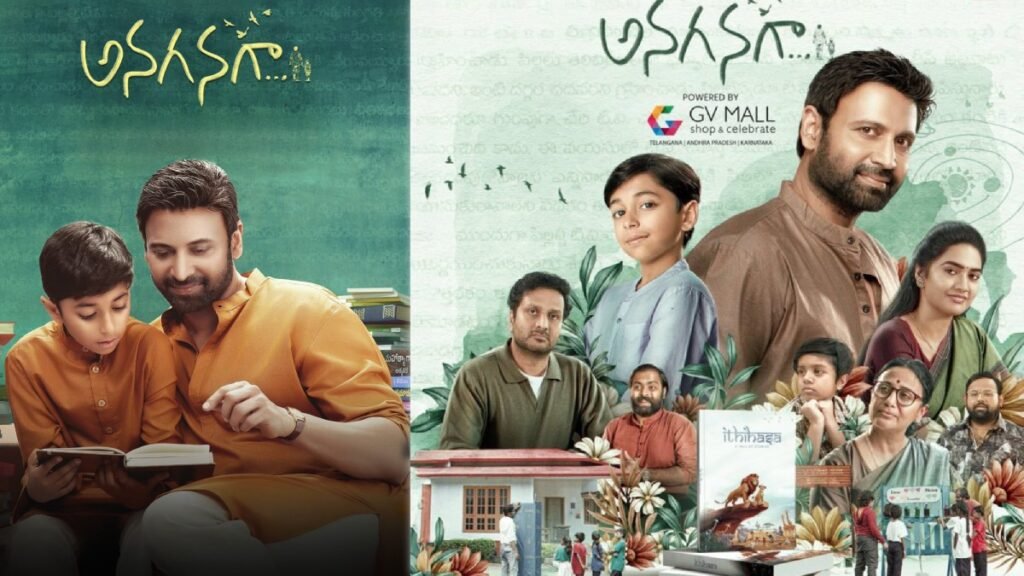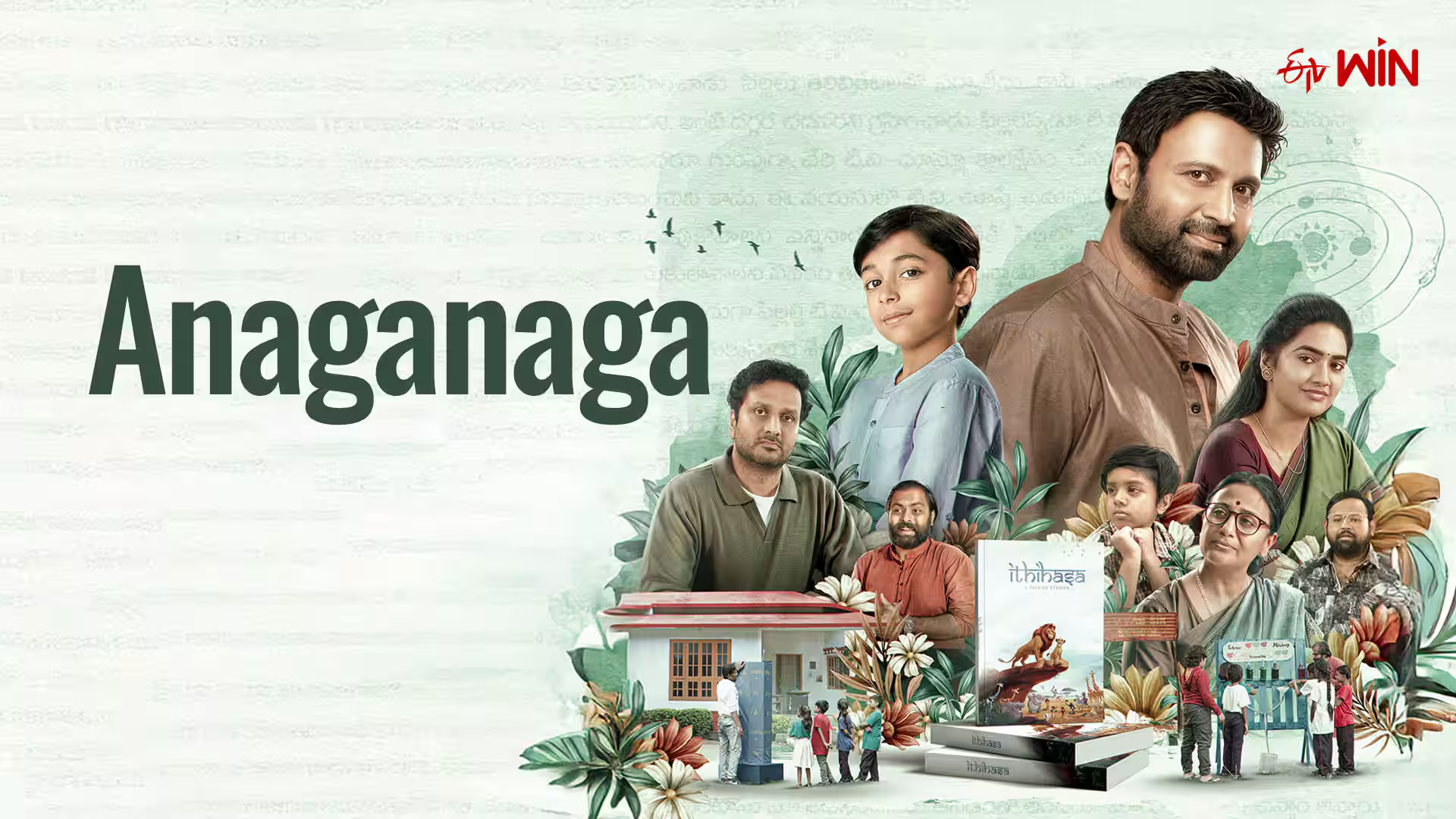In an era where academic excellence is often equated with self-worth, Anaganaga emerges as a powerful and empathetic Telugu film that challenges the system’s rigid definitions of success. Directed with quiet conviction and emotional depth, Anaganaga doesn’t scream for attention—it earns it. The film’s strength lies in its sensitive storytelling, emotional honesty, and a sincere performance from its cast, led by Sumanth in one of his most introspective roles to date.
A Reflective Mirror on the Education System
Anaganaga takes a hard look at the darker side of academic competition. The film’s setting—a typical school environment in India—captures the extreme emphasis on grades, where only toppers are rewarded and failures are publicly shamed. This punitive culture, still prevalent in many educational institutions, is portrayed through scenes of corporal punishment and emotional breakdowns.
Rather than resorting to melodrama, the film presents these harsh realities with restraint. It’s in these moments that Anaganaga hits closest to home, evoking a quiet but persistent discomfort. Every student who’s had a beloved art or language class replaced by a dreaded math or science period will relate. The film invites the audience to reflect: what have we lost in the relentless pursuit of academic perfection?
Sumanth Shines with Emotional Subtlety
At the heart of Anaganaga is Vyas, played by Sumanth. He’s not a grand revolutionary nor a savior figure. Instead, Vyas is a gentle, soft-spoken teacher and father trying to bridge the gap between what children need and what the system demands. Sumanth delivers a measured performance, allowing silence and expression to speak louder than words. His interactions with his on-screen son, Ram (played by Viharsh), are especially poignant.
A standout moment is their bonding over a Mufasa-Simba story—a subtle yet powerful metaphor that gains depth as the narrative unfolds. These scenes are not only beautifully written but deeply human, showcasing how emotional support and understanding can be far more impactful than strict discipline or high grades.

Viharsh and Kajal Choudhary Add Depth
Viharsh, as Ram, brings both vulnerability and innocence to the screen. He becomes the emotional anchor of the film, embodying the very children the education system often overlooks. Kajal Choudhary, playing Ram’s mother, delivers a performance filled with restrained emotion. Her character is torn between wanting the best for her child and navigating the demands of a system that doesn’t allow much flexibility.
The chemistry among the trio feels genuine, enhancing the film’s grounded approach. None of the actors play to the gallery; instead, they lean into the film’s introspective tone, giving Anaganaga its tender soul.
Beyond the Classroom: What Does It Mean to Teach with Kindness?
More than just a critique of the education system, Anaganaga is a meditation on the nature of teaching and parenting. The film repeatedly asks: what would it mean to truly teach with kindness? It doesn’t pretend to have all the answers, but it does urge viewers to reimagine the role of educators—not as enforcers of rote learning but as guides for emotional and personal growth.
This message is further underlined by the film’s structure, which slowly builds emotional resonance rather than chasing dramatic highs. The absence of conventional thrills may feel slow-paced to some viewers, but for those invested in character-driven storytelling, the payoff is profound.

A Familiar Yet Poignant Ending
In its final act, Anaganaga introduces a health-related subplot involving Vyas that may initially come across as clichéd. However, the film handles this transition with grace and restraint. Instead of becoming a tearjerker, it reflects on a question posed earlier in the film: What will Vyas leave behind for his son?
The answer lies not in material inheritance, but in emotional legacy—a concept that ties back to the film’s core message. It’s this emotional throughline that elevates Anaganaga from a simple school drama to a philosophical reflection on parenting, love, and leaving behind more than just memories.
Rentala Jayadeva and the Power of Stories
Adding another layer to the film’s impact is the involvement of Mana Cinema – First Reel author Rentala Jayadeva, whose contribution as a narrative consultant or thematic influencer is evident in the film’s literary texture. Jayadeva has long advocated for making film history readable and accessible, and Anaganaga mirrors that mission by turning a social issue into an engaging, thoughtful cinematic experience.
Final Verdict: Quietly Powerful and Deeply Honest
Anaganaga is not a loud film. It doesn’t rely on dramatic confrontations or exaggerated emotions. Instead, it thrives on emotional authenticity, subtle storytelling, and a heartfelt message. With compelling performances from Sumanth, Viharsh, and Kajal Choudhary, the film becomes a gentle but firm critique of the education system’s obsession with grades, and a celebration of empathy in learning.
For viewers seeking meaningful cinema that touches the heart and sparks conversation, Anaganaga is a must-watch. It leaves you not just with tears or smiles, but with questions—about how we define success, how we raise children, and most importantly, how we teach them to feel.
For more interesting content visit our site: CLICK HERE
For more details visit : CLICK HERE

